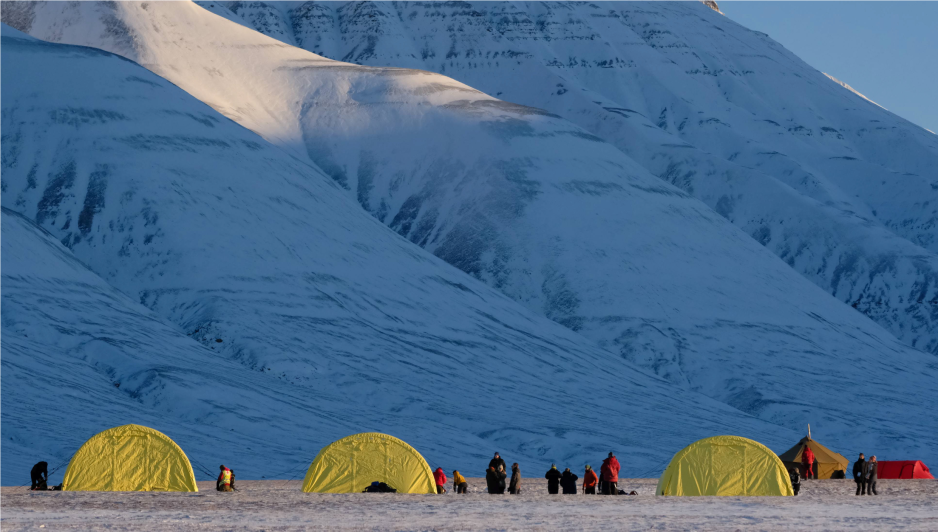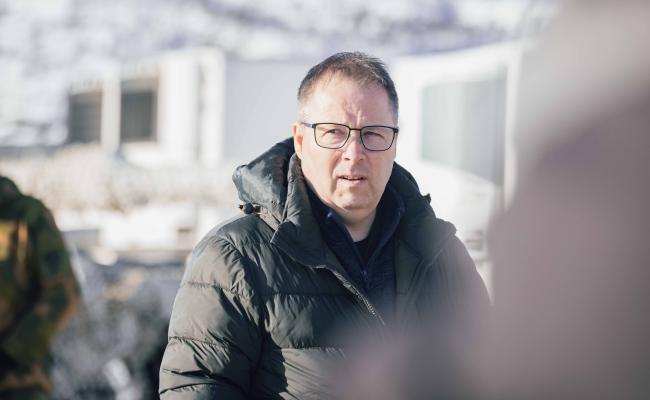Op-ed: Arctic Emergency Management Conference: Responding to Emerging Challenges and Risks

Between the 18-20th of March 2025, the city of Bodø, Norway, will be the focal point of Arctic emergency preparedness. (Ilustration: The Arctic Council)
The Norwegian Chairship of the Arctic Council and Nord university will host the highly anticipated Arctic Emergency Management Conference in Bodø, in March of 2025.
This is an opinion piece written by an external contributor. All views expressed are the author's own.
This conference is part of the official program of the Norwegian Chairship of the Arctic Council in 2023-2025 and reflects Norway’s goal of enhancing Arctic cooperation on these critical issues.
The idea for a dedicated conference on emergency preparedness is a result of extensive consultations with Norwegian organizations involved in the work of the Emergency Prevention, Preparedness and Response (EPPR) Working Group of the Arctic Council.
This initiative highlights the urgent need for an arena to discuss the various challenges posed by emergencies in the Arctic region.
Co-hosted by the Norwegian Chairship of the Arctic Council and Nord University through the Center for Crisis Management and Collaboration, the conference aims to unite distinguished experts, academics, practitioners, Arctic inhabitants and policymakers committed to tackling the unique obstacles of emergency preparedness in the Arctic.
The conference will focus on critical themes, including marine environmental response, search and rescue operations, prevention and response for radiological and nuclear accidents, and preparedness for wildland fires in the Arctic.
Nord University focuses on societal security as one of its core strategic areas
Additionally, it will prioritize topics such as incorporating Indigenous Knowledge in emergency management, health preparedness, and preparedness of Arctic communities amidst the growing environmental risks they face.
Located at Nord University in Bodø, the Center for Crisis Management and Collaboration provides research, education, and training in emergency preparedness and collaboration for students and professionals across various sectors.
The Center conducts research on crisis management and operates a training and simulator lab, Nordlab, for practical exercises and stakeholder engagement.
Nord University focuses on societal security as one of its core strategic areas, aiming to enhance knowledge about risk and vulnerability to support safe and democratic societies.
Education at Nord University, alongside the centres’ research on crisis management, emergency preparedness, collaboration, and the complexity within these, contribute to building resilience, raising awareness of risks, and ensuring preparedness for societal threats.
Also read (The text continues)
The university leverages its Arctic location in Northern Norway to strengthen knowledge regarding these regional challenges.
Namely, the Arctic region is experiencing an increasing risk trend of natural and manmade disasters and accidents due to the industrial and tourism activity and the changing climate.
With the Arctic being one of the regions most severely impacted by climate change, the frequency and intensity of severe weather events—ranging from flooding, erosion, wildland fires, volcano eruptions and landslides to unpredictable sea ice conditions and big avalanches—underscores the necessity for robust emergency prevention, preparedness and response strategies.
Furthermore, new challenges are emerging from the increasing transport and use of potentially hazardous materials and high-risk technologies in the Arctic including new fuels, energy sources, chemicals, and nuclear and radioactive materials.
The broader context for this conference highlights the urgent need for Arctic nations and communities to align their emergency management efforts to enhance regional societal resilience.
Local municipalities, such as Bodø municipality, have a major role in preparedness and response efforts.
Local communities in the Arctic are often remote with scarce infrastructure and may lack capability to respond to a major disaster.
Although accidents frequently have larger consequences, they happen locally and the local municipalities, such as Bodø municipality, have a major role in preparedness and response efforts.
As Arctic inhabitants face the challenges and risks associated with the changing environment first-hand, as well as industrial activity including oil exploration, new shipping routes and increased tourism, enhancing health and safety of Arctic inhabitants and Indigenous Peoples in particular, is one of the strategic actions outlined in the Arctic Council Strategic Plan 2021-2030.
Strengthening cross-sectoral collaboration and incorporating local and Indigenous Knowledge is necessary for informed risk management and decision-making.
During its Chairship of the Arctic Council, Norway has focused on four thematic priorities − the oceans, climate and environment, sustainable economic development, and people in the North.
Preparedness efforts and effective emergency management encompass all these thematic areas.
There have been several conferences and forums in the past dedicated to gathering different stakeholder groups for specific topics in Arctic emergency prevention, preparedness and response, but for the first time this conference brings together practitioners and academia to strengthen partnerships and increase knowledge on topics related to all kinds of risks and hazards in the Arctic region.
Arctic Emergency Management Conference 2025 will provide an opportunity for the scientific community and practitioners to participate with poster and oral presentations, and to display and share innovations, technology, and services at the exhibition area for an international emergency preparedness network.
As participants converge in Bodø, they will discuss the pressing challenges emphasizing the importance of formulating concrete strategies, engage in practical exercises, and form connections to strengthen the resilience of Arctic communities facing ongoing environmental and societal changes.
Signed:
Rune Elvegård, Natalia Andreassen, Hanne Austerheim, Emmi Ikonen, Emelie Johansen Wold and James Badu from Nord University and, Ole Kristian Bjerkemo, EPPR Chair, Arctic Council


